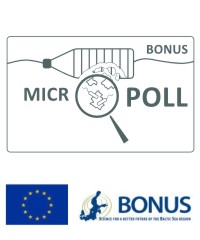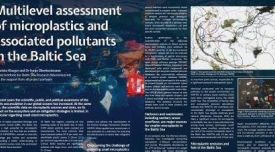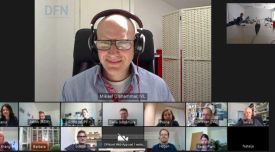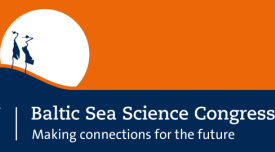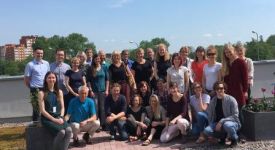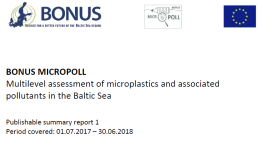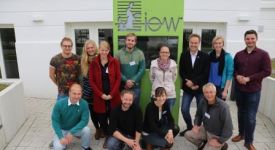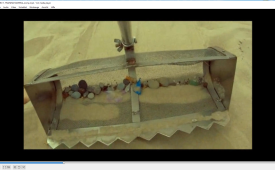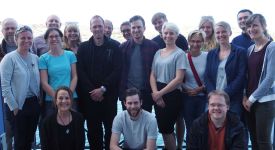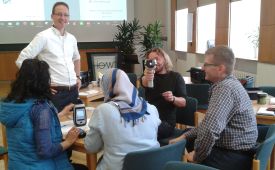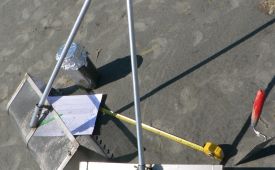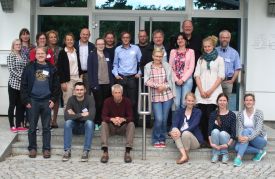October 2020: synthesis report on BONUS MICROPOLL results
In September 2020 our project came to an end. In more than three years, seven research institutes from five Baltic Sea neighbouring states worked closely together and increased the knowledge about microplastic pollution and its impact on the Baltic Sea. A short summary of our project results can be found here.
June 2020: fourth project meeting, virtual
The consortium met for the last time to update each other and prepare for the final project phase. Due to the Covid-19 pandemic, the meeting took place virtually. It was an unusual, new situation, nevertheless it led to a productive exchange of knowledge. The project is well on schedule and with 22 scientific publications by now it has already provided many interesting results for the scientific community with more to come!
August 2019: BONUS MICROPOLL at the BSSC in Stockholm
In Stockholm several partner presented their work in BONUS MICROPOLL in front of a broad scientific audience. The project was represented in several talks and poster. A Plenary talk, given by Katharina Kesy, showed the BONUS MICROPOLL results about Vibrio abundances in early bacterial assemblages on microplastics along the Baltic Sea coastline.
May 2019: third project meeting Lithuania, Klaipeda
Representatives of all partners met for the third time to exchange the progress in the project. This year’s meeting took place in Klaipeda, Lithuania. The two day meeting was full of interesting talks and exchange between also with other projects related to litter in the Baltic Sea. The focus of the meeting was the publication output and future collaborations. The second day contained an excursion to the beach and a hunt for amber (and of course we also found plastic!).
October 2018: Progress in the first Reporting period
BONUS MICROPOLL is now successfully running for more than one year. A lot was achieved since when it started in July 2017. All working groups worked closely together to proceed in the working plan. The progress of the project is presented in the summary report. Moreover, all project aims were achieved in time and can be downloaded here. We are looking forward to the following years of successful research and interesting findings in the field of marine microplastic science.
9. October 2018: End-User Forum
From research directly into practice! BONUS MICROPOLL was very pleased to welcome guests to the End-User Forum in the IOW. Several microplastic projects shared their scientific progress with representatives of state authorities and stakeholders, in particular on sampling and processing as well as avoidance strategies. Besides lectures about the methodological work and the corresponding discussion at the round table, a practical demonstration took place at the beach of Warnemünde to illustrate litter monitoring on the beach.
July 2018: Training material for plastic monitoring published
A video with teaching material of different cost effective and easy to follow methods applied for marine litter samplings around the beaches of the Baltic Sea was developed. The methods shown are focusing mostly on larger micro-litter (> 2 mm – 5 mm) and meso-litter (> 5 – 25 mm). The Rake-method covers the whole width of the beach between the waterline and the vegetation, cliff etc. while the goal of the Tidal method is to survey beach wrack that washed up along the beach after stormy events. Additionally, the 100m OSPAR method is presented, a naked eye method investigating macro-litter (> 25 mm) on the surface of the beach.
7./8. May 2018: 2nd project meeting BONUS MICROPOLL
Venue: Sven Lovén Centre for Marine Sciences Kristineberg, Sweden
26 members from all 7 project partners participated in the meeting, hosted by IVL at the scenic Swedish west coast. Every partner gave updates about their activities in the first project year, followed by constructive discussions on current and upcoming tasks. Selected topics comprise the methodologies for processing and analysing microplastics, the use of natural control particles in experiments, dissemination and microplastic avoidance measures, and the upcoming first progress report. The project can offer a positive summary of its first year, and several joint experiments are planned for the second year. One highlight of the meeting was the seafood dinner with picturesque views, followed by a dip in the refreshing Baltic Sea.
October 2017: Workshop for the detection of larger microplastics
On the 12th of October, partners from Lithuania, Poland, and Germany took part in a workshop on the use of the microPHAZIR PC (Thermo Fisher Scientific). The device applies near-infrared spectroscopy to rapidly identify 30 different polymer types, covering a spectral range of 1600 - 2400 nm. It can be used to analyze plastic particles >1mm and will mostly be applied in the beach monitoring. First test samples were analyzed already during the workshop. The event took place in the Leibniz Institute for Baltic Sea Research and was carried out by the company analyticon as in-kind contribution.
Summer 2017: First beach sampling of BONUS MICROPOLL
In the course of BONUS MICROPOLL, beach samples will be taken along the whole coast of the Baltic Sea. The first beach litter sampling took place in July. Partners from Klaipeda University surveyed different beaches in Lithuania, Latvia and Estonia. Partners from the IOW sampled for two weeks along the Swedish mainland coast and at the island Öland. Up to now, around 70 samples from around 30 sandy beaches were taken with the Rake method (Haseler et al. 2017, Journal of Coastal Conservation), focusing on meso and large microlitter items. Subsamples of the beach sediments were taken for analysis of the smaller microlitter fraction.
4./5. July 2017: Kickoff meeting BONUS MICROPOLL
Venue: Leibniz Institute for Baltic Sea Research Warnemünde, Germany
25 members from 6 project partners (out of 7) took part in the first meeting of BONUS MICROPOLL. Presentations were given by the Advisory Board members Gunnar Gerdts (AWI) and Kara Lavender Law (SEA), sharing their longstanding experience with microplastic projects. All project partners gave overviews of their planned activities, followed by discussing and organizing the sampling campaigns, database and model input, and other linkages within the project. During dinner the opportunity was taken to socialize and develop further collaborations within the project.
